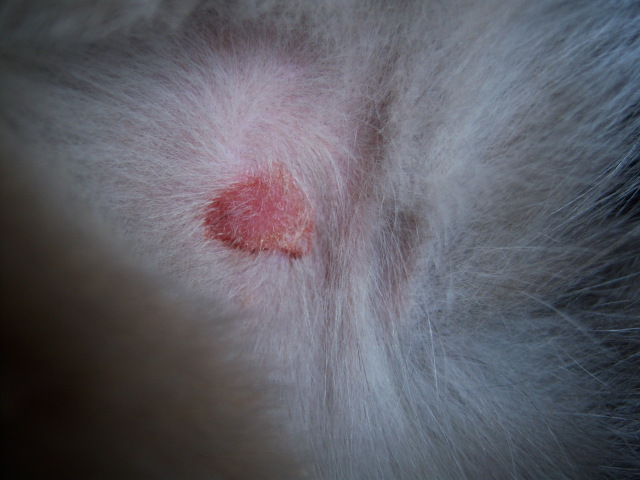QuestionDr. Fry,
I am a U.S. service member stationed in Afghanistan. This country has a very high stray population, and the animals have very difficult lives. My unit rescued a stray puppy, and have seen to it that she has had all her puppy shots on schedule. She is now about 4 months old, and in the past two weeks has developed some cauliflower-like growths on her lips, gums and palate, as well as all over the inside of her mouth. We have given her de-worming medicine, but are unable to get her in to a regular vet due to our location. I would be happy to attach photos of the growths and send them, if you think it would help to make a diagnosis. I am planning to ship the dog home with us as a pet. Can you help?
V/r,
Sgt Brooke Hofmann
Det-Kabul, Afghanistan
AnswerIt sounds like warts or transmissible venereal tumors (more below) but only a biopsy would confirm or deny that suspicion. I am not aware of the specific diseases in that country as it could be something peculiar to Afghanistan.
Transmissible venereal tumor (TVT) is a potentially cancerous growth that occurs most often in young, unneutered male and female dogs. Any breed may be affected. Female dogs are at a greater risk of developing TVT than male dogs. Feral and other dogs that come into frequent unrestricted contact with relatively large canine populations are at greatest risk. TVT is transmitted from an affected dog to a tumor-free dog by sexual contact. The primary tumor, which may arise as a single lump or as multiple masses, develops on the mucosa of the external genitalia. There are rare reports of tumors in the nasal and oral cavities associated with sniffing and licking behaviors. The transmission and behavior of TVT suggests a virus as a cause. These tumors may resemble small, pinkish to reddish cauliflower-textured nodules that may be firm or soft. They tend to bleed and may ulcerate. Definitive diagnosis of TVT requires some cellular sampling, with a fine-needle aspirate or biopsy. TVT may spread locally, but metastasis (distant spreading) to other tissues such as the skin, brain, and other organs occurs infrequently. Immunocompromised dogs may experience metastasis more frequently than dogs with a healthy immune system. Spontaneous regression of TVT may occur. However, due to the chance of metastasis, especially in dogs whose immune status is unknown or not ascertainable, treatment is usually given. If the tumor is small and no metastasis has occurred, surgery may be curative if complete excision of the mass along with a zone of normal tissue is feasible. If the mass cannot be completely removed then chemotherapy or radiation may be used to treat the disease. Several chemotherapy drugs have been used to treat TVT. Vincristine is perhaps the most effective agent against TVT. It is well tolerated by most dogs. Most dogs will need between two and six treatments for a complete remission to occur. Vincristine will eradicate both local and metastatic TVT; it is considered the treatment of choice for these tumors. For dogs that cannot tolerate vincristine, radiation therapy may be very effective if no metastatic lesions exist. Overall the prognosis for cure of TVT is good.

 Female Tortie cat 7 years old
Question
Sadie
My cat sadie gets a re-occuring sore in
Female Tortie cat 7 years old
Question
Sadie
My cat sadie gets a re-occuring sore in
 My old cat whos not eating well after dental surgery
Question
timmy since his surger
Hi, Im really worried a
My old cat whos not eating well after dental surgery
Question
timmy since his surger
Hi, Im really worried a
 inquiry..my bunny keeps drolling n grinding his teeth
Question
dental xray xray
Dear Jana,
Hai..
inquiry..my bunny keeps drolling n grinding his teeth
Question
dental xray xray
Dear Jana,
Hai..
 Skin (allergy) issues
Question
Licking sore
Tao my cat is about 9 years old,
Skin (allergy) issues
Question
Licking sore
Tao my cat is about 9 years old,
 Radioiodine treatment of hyperthyroidism in our cat
Question
Molly
Dear Jana,
I wrote you near the end of
Radioiodine treatment of hyperthyroidism in our cat
Question
Molly
Dear Jana,
I wrote you near the end of